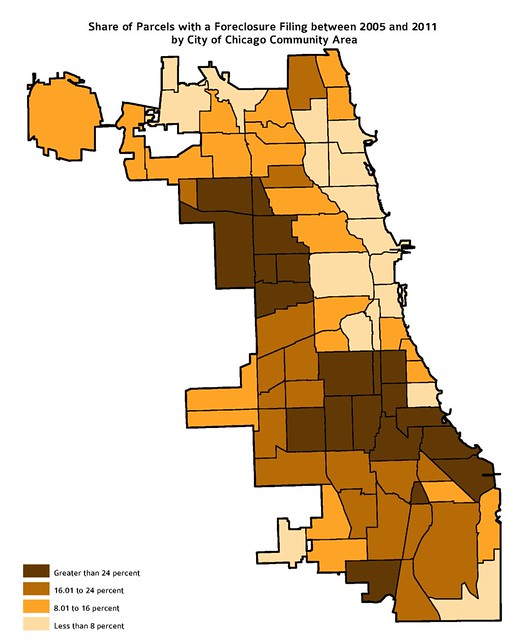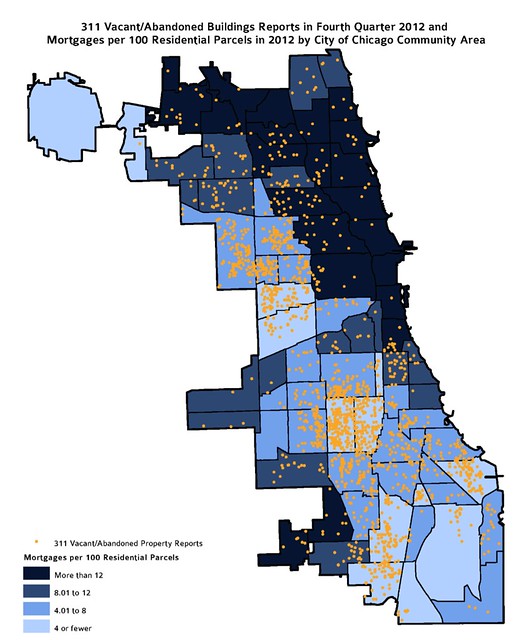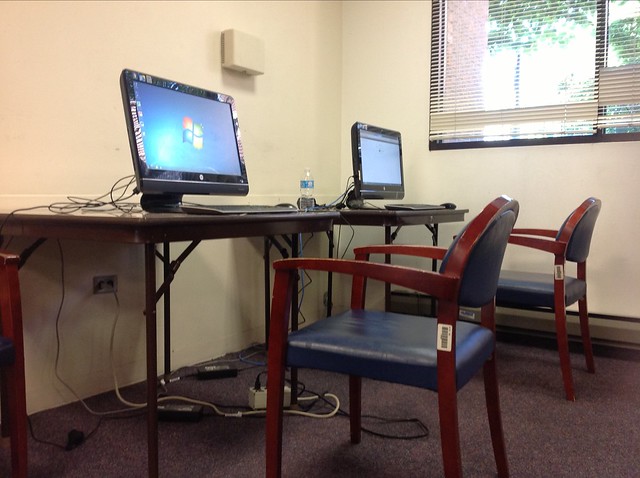Photo: Alex Rodgers/Creative Commons
At last week’s Chicago Open Gov Meetup, Tina Fassett of the DePaul University Institute for Housing Studies talked about her work and the data that that university has made available on their web portal.
The Institute for Housing Studies is a research center at DePaul University whose mission is to provide reliable, impartial, and timely data and research to inform housing policy decisions and discussions about the state of housing in the Chicago region and nationally.
As part of this mission, the Institute launched a data portal containing information on housing stock, property sales, mortgage data, foreclosing filings, and foreclosure auctions for the metro chicago area.
Here’s Fassett showing some examples of housing indicators:

In this example, the chart shows the cumulative percent of parcels impacted by a foreclosure in a given area since 2005. When you compare this chart to other years on the data portal, you can see the growth of foreclosure filings in the city.

In this example, the Institute of Housing added their own data to bring context to a data set from the city’s data portal. This map shows mortgage activity per 100 resident parcels. According to Fassett, “High levels of mortgage activity are a sign of the health of a housing market because they indicate high demand and the willingness of banks to finance the purchase of new homes and the ability of homeowners to access credit and obtain refinancing…This is a pattern you would generally expect – the higher the level of mortgage activity in a community area, the fewer 3-1-1 vacant building calls.”
If you’d like more information about the work the Institute for Housing Studies is doing, you can visit their website or follow them on twitter.



